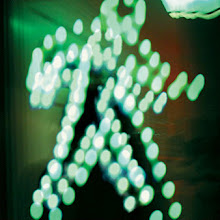WHAT IS AUTISM?
* Autism is a developmental disorder that is characterized most notably by difficulty in acquiring normal language, leisure, and social interaction skills.
* Autism is neurological in origin and occurs as a result of abnormal brain function.
* People with autism may also suffer from physical ailments such as difficulty in feeding, sleeping, and integrating sensory input received from the environment.
* Autism is known as a spectrum disorder because there is a range of possible symptoms and severity levels that a person may exhibit.
* Autism is the most common of five distinct disorders that belong within the category of Pervasive Developmental Disorder (PDD).
* The four other Pervasive Developmental Disorders include Asperger's Disorder, Childhood Disintegrative Disorder, Rett's Disorder, and PDD-Not Otherwise Specified.
* Although each of these disorders has a specific diagnostic criteria, the Pervasive Developmental Disorders are similar in that multiple areas of development are greatly impacted.
WHO HAS AUTISM?
* The symptoms of autism are often evident by the time a child reaches age three.
* Autism occurs significantly more often in boys than in girls.
* Autism equally affects people living in all areas of the world, regardless of race or socio-economic status
How do I know if my child has autism?
* Autism can only be diagnosed by a medical professional such as a developmental pediatrician, a pediatric neurologist, a pediatric psychiatrist, or a pediatric psychologist
* Conventional medical tests such as drawing blood or scanning the brain cannot be used to diagnose autism
* A diagnosis of autism is made through observing the child and interviewing adults who are familiar with the child
WHAT CAUSES AUTISM?
* No one knows for sure what causes autism
* There is no conclusive evidence, but some studies have attempted to link autism to childhood vaccinations
* Intrauterine exposure to harmful substances and infections is also being investigated as a possible cause of autism
* Although no specific genes have been isolated, researchers are investigating the possibility that there are genes which could make a child more susceptible to autism.
IS THERE A CURE FOR AUTISM?
* There is no cure for autism
* The disorder will remain for life, but the symptoms of autism can sometimes be greatly improved
* There is no single way to treat autism
* Autism is typically treated with a combination of therapies that is best determined by analyzing the individual's strengths and weaknesses
* Treatment approaches often include sensory integration, occupational, speech, physical, vision and behavioral therapies
* These therapies typically target the elimination of inappropriate behaviors and the addition of appropriate or compensatory behaviors
* Individuals with autism may also demonstrate improvement when medical and physical treatments such as chelation therapy, dietary intervention, or hyperbaric oxygen therapy are applied
* Non-medical approaches to autism could include pet therapy, music therapy, or canine therapy
WHERE CAN I FIND MORE INFORMATION ABOUT AUTISM?
Autism Society of America
http://www.autism-society.org/site/PageServer?pagename=homepage
Mayo Clinic
http://www.mayoclinic.com/health/autism/DS00348
The National Institute of Mental Health (NIMH)
http://www.nimh.nih.gov/healthinformation/autismmenu.cfm
The Centers for Disease Control and Prevention (CDC)
http://www.cdc.gov/ncbddd/autism/index.htm
Dan Marino Foundation
http://danmarinofoundation.org
www.nationalautismassociation.org
www.cureautismnow.org
Friday, March 23, 2007
Subscribe to:
Post Comments (Atom)



No comments:
Post a Comment